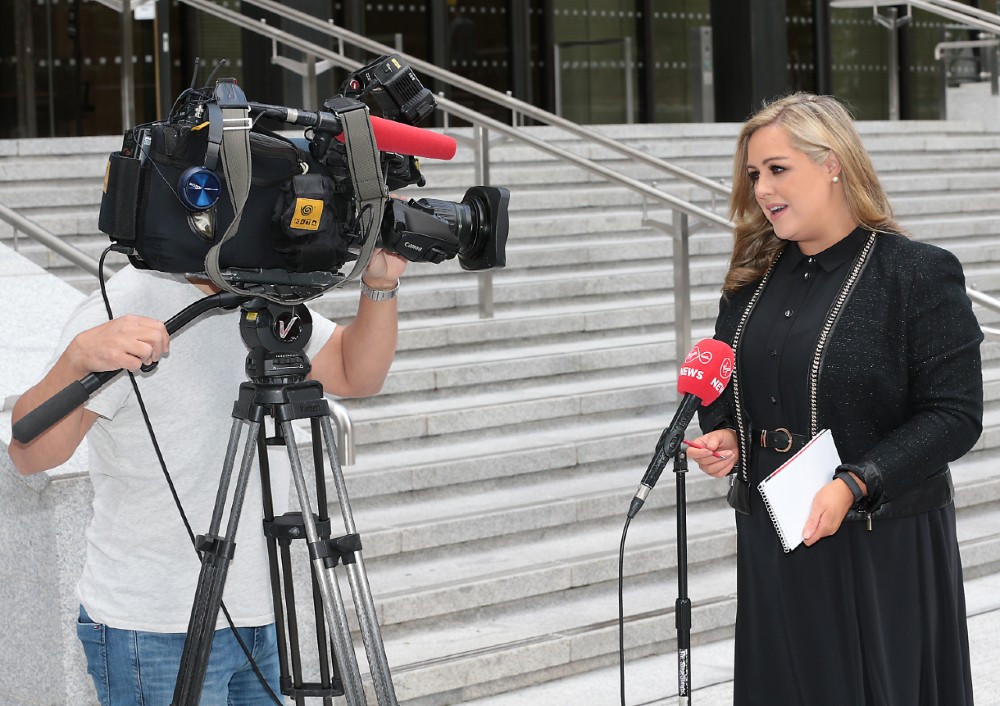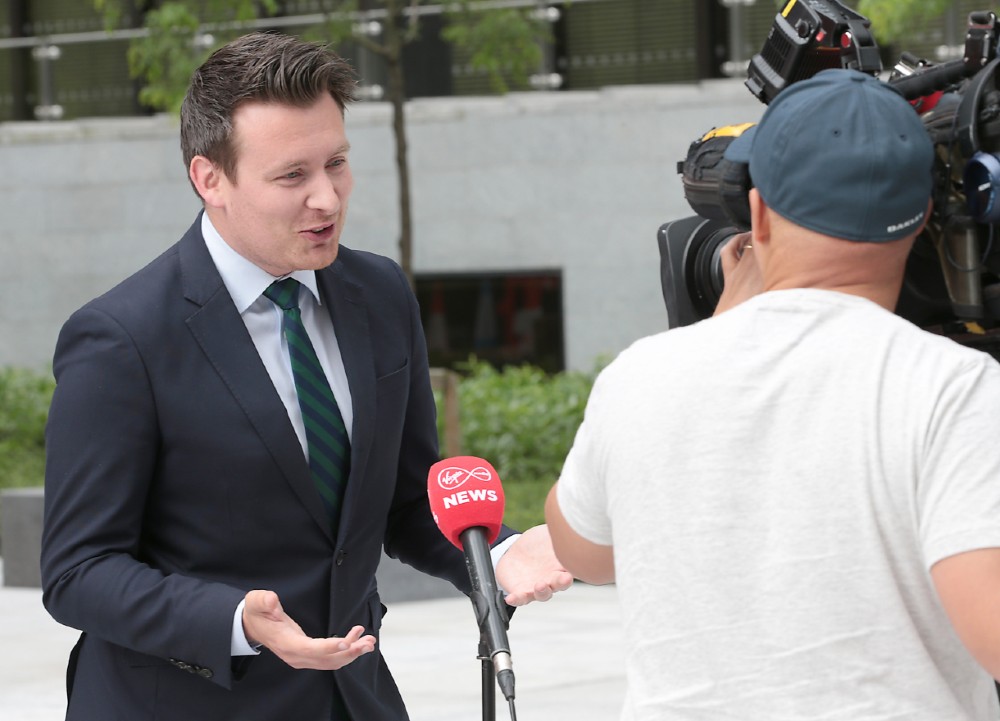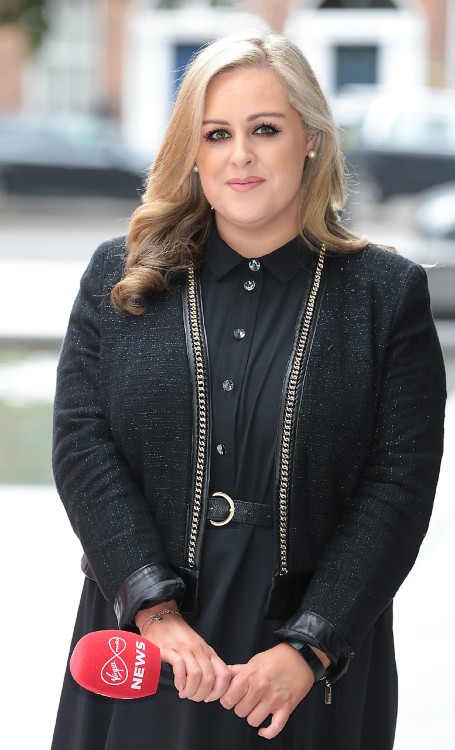Words by Kevin Palmer, who you can follow on Twitter @RealKevinPalmer

As we lived through the biggest crisis in our collective lives, the questions the Irish nation needed answering were not as obvious as they seemed.
The daily totals of deaths and new cases as the Covid-19 pandemic consumed everything that was normal in our lives took us to a place that was hard to comprehend, with Virgin Media News presenters Zara King and Richard Chambers handed the task of getting the answers we needed.
While reporting the grim facts of the days were an essential part of our daily news diet, the Irish public wanted Chief Medical Officer Tony Holohan to give them answers to more mundane issues that were pressing and for King, the task was to present the questions others may have been reluctant to ask.
“We would go through the questions our audience was sending in on Instagram or via email and while people laughed when I asked, 'when can people have a haircut?' or 'when will the pubs open?'; that was important to a lot of people at that time,” Zara told Female First.
“None of us knew what we were meant to do during this extraordinary time in our lives, but I saw my job as being a bridge between our audience and those who had the answers to their questions and we had to find a way to get those points across.
“As reporters on Virgin Media News, we had to show empathy with what they were going through and I hope we did that.
“Our broadcast is on at 5.30pm every day and it felt like I was the person bringing the bad news to the nation every night and that is not a nice position to be in, but hopefully we found a way to tell people what was happening in the right manner.”
When King's Virgin Media News reporting colleague Richard Chambers reflects on the story of the Covid-19 crisis, he reflects on a national mood that changed so quickly after initial pessimism.

"I was looking back at some of the Virgin Media News coverage at the start of this and there there was footage of Irish rugby officials going into meetings and talking about halting the Six Nations," he reflected in an interview with Female First. "The reaction at the time was, why would we stop everything for what is essentially the flu, which is a remarkable reaction when we know what we know about Covid-19 now.
"It feels like we have been war reporters at times in the last few months. The is one of our generation's biggest stories and as a reporter working it every day, it has been intense at times. It's nothing compared to the frontline workers, obviously, but it feels like we have been reporting on this and worrying about this for a long time now, but it's only been five months. Five long months.
"In a way, it's been a privilege for me and the Virgin Media News team to be telling this story and reporting this news because the Irish people are letting us into their lives and while it has been overwhelming at times, the overriding emotion has been the need to stay focused on the importance of what we are doing.
"I know some journalists who will say they can detach themselves from the story and look at it as a job, but I just can't do that, especially in a story like this.
"When we report on those Covid-19 numbers every day, every one of those who have lost their lives will be living through one of the worst days of their lives. They might not have said goodbye to family members as they would have wanted to. This is a real human tragedy, not just another number of another graph. It's so important not to report that a decline in deaths is good news because for those affected, it's the most awful thing that can happen."

Zara, who started out in radio and worked at Newstalk before getting her big break on TV with Virgin Media News, admits she was traumatised by some of the coverage she reported on, with her emotions overflowing after the cameras were turned off.
“It’s been really tough to report the news as it was so grim, but this was one of those situations we just got thrown into and we didn’t have time to think about it,” she continued. “There would be times when I would come away from the Department of Health briefing and I would get back to my car and cry.
“On the screen, my job was to get through it and give the people the information they needed, but it was very hard to report on what was happening.
“Every day you would come in and there would be 30 or 40 people dying and I remember thinking that for these families, this is not just another number, this is one of the worst days of their lives.
“The night that 77 people died; I can’t watch that clip back because I remember being handed a piece of paper and it frightened me when I saw that number. It was such a big jump from where we had been and people that knew me saw me on TV and said how shocked I looked.
“What we quickly realised was that this was the biggest story we will ever report on in our lifetime and while it was affecting all of us in different ways, we had to find a way to get through it. “
King is active on social media channels and she admits some of the negative comments that come her way have had an effect on her clothing choices.
“Most people on Twitter are very kind, but you get the odd comment that will bother you,” adds King. “Most of the dresses in my wardrobe are black, but I wore a green outfit a few weeks back and it didn’t take long for a man to respond and say he didn’t like it.
“I would like to say it didn’t bother me, but I haven’t worn the dress since so clearly it was in my mind after that observation.”
Meanwhile, Chambers believes the crisis has highlighted the enduring need for quality journalism, at a time when the reluctance to pay for trustworthy content is an ongoing issue for the industry.
"The importance of journalism is shining through during this crisis. Around the world, there is a lot of noise from politicians and the people have realised the importance on good reporting giving the facts rather than the spin some may want us to see on our TV screens or read in our newspapers," he added.
"Social media has become an important part of the discussion as well. At Virgin Media News, we have a lot of young reporters who are engaged in social media and it is good to have a discussion with the audience, gauging the mood of our viewers and explaining things to people.
"We have also seen a much younger audience tuning into our news coverage in recent weeks and that may be because we have a human, approachable face out there."
The Covid-19 war is far from won, but so many of those who have been on the frontline giving us the news we need have served us well in these times of crisis.
Click HERE for more coronavirus coverage on Female First.
Tagged in Coronavirus

